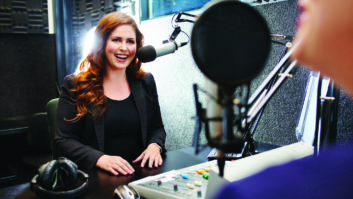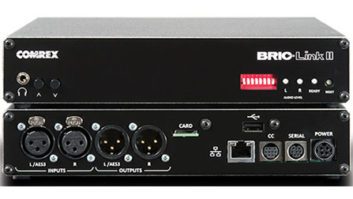Podcasting has been on my mind lately (and apparently this sentiment is shared by at least half of the Internet).
My thoughts on the medium have been rather disorganized, but I have a long list of questions that I’d like answered.
How should podcasting fit into the overall media strategy of radio organizations in 2015? Should it be included at all — it’s certainly not for every station? And if a station is big enough to maintain, support and monetize a website, is that the best or only resource to use to host podcasts of station content?
How are podcasts different than radio? Are they really different? Are podcasts the “TiVO/DVR time shifting” equivalent for radio? Or mostly a convenient way to offer “best of” segments of popular shows?
Can radio stations generate revenue from podcasts, or drive listening to their radio stations? If there is no financial model, why is a station interested?
How does podcast consumption differ based on location? Does someone in an urban market listen to more of them, or less, as opposed to someone in a comparatively more rural or suburban area? Do people who commute via car or via public transit favor podcasts, or is the playing field level? What percentage is mobile versus desktop? At what rate is mobile growing? Are there new “connected car” radio/media models that include internal or external plugin storage options for podcasts so they can be played back later, a la DVR for TV? Certainly most mobile smart devices have that.
Are podcasts actually more popular now than they were two years ago — or are they just perceived as cooler and people are thus more willing to discuss them? Is popularity based just on downloads — or is there a sponsorship component? How are companies/individuals generating money? Does public radio have the upper hand because it is already based on a sponsorship, rather than spot advertising model?
Do all websites that feature podcast content have the built-in ability to measure and track download activity and user demo info?
What will the retention rate be for listeners who jumped on the “Serial” bandwagon? Have podcasts in general seen a spike in downloads or website traffic, and if so, will it continue three months from now?
Should stations run the podcast on-air too? Would it have hurt “Serial”’s numbers if it had been broadcast at the same time? Or would that have helped generate even more downloads? Should it now air since the podcasting part is now past its peak?
What was (is?) so special about “Serial?” Was it the format, or its true-crime, “Law & Order: SVU” subject matter? Was it the creative production? Was it the immense amount of research in the story? Was it the story itself? Can daily radio shows slated for podcast downloading on a station website take on and attract such intrigue and notoriety? Does the attraction of “Serial” as an ongoing story with a plot told in serial installments have that much to do with radio show podcasts that merely replay “best of” segments of standalone daily shows?
Do people download or stream podcasts, or both depending on the situation? (Are podcasts even still podcasts if you stream them?) Is the popularity driving downloads of apps like Stitcher that do both? Do fans of podcasting download them to their PC or device first to primarily eliminate buffering and dropout issues, or because they want to save/archive them for later consumption? What percentage of regular podcast users endure frequent technical problems using them and streaming them live without downloading?
What is the appeal of podcasts? Do they have more of a niche audience than the average radio program (I assume the answer is yes)? Is there a sweet demo target (age group)? What are the demographics of podcast usage? Do mostly younger demos use them?
Here’s what I do know: Merriam-Webster’s Dictionary defines podcast as “a program (as of music or talk) made available in digital format for automatic download over the Internet.” Also, to my shame, I only recently learned that the term is derived from a combination of “iPod” and “broadcast” and was first used in 2004. (It makes perfect sense; I just never questioned that before now.)
Also, will the lawsuit brought against podcaster Adam Carolla by alleged patent troll Personal Audio or any other lawsuits concerning podcasting technology have an effect on stations who might want to branch out into this medium?
So keeping, that definition in mind, can just about any radio program be made into a podcast? Or vice versa? Is it worth the effort to make a “best of” podcast daily for a high profile personality morning show?
And is it reasonable for stations wanting to feature “best of” podcasts of their popular shows on their websites to merely task an existing production or programming person with the editing and uploading tasks? Should the station pay that employee for the extra hours required and added workload?
These are all questions that Radio World would like to explore to over the coming months. Do you have your own podcast-related queries? If so, share them with us via email or comment below.
Special thanks to Mark Lapidus and Tom McGinley for helping to shape these questions!












